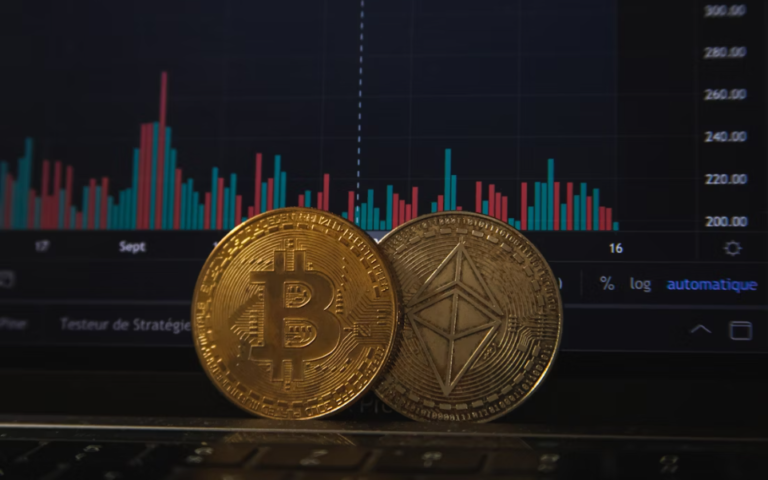How Geopolitical Events Impact the Stock Market: A Comprehensive Analysis
The stock market is often viewed as a barometer of economic health, responding to various global and domestic factors. Among the most influential are geopolitical events, which can dramatically affect market sentiment, investor confidence, and ultimately, stock prices. Understanding how geopolitical events impact the stock market can help investors navigate volatile periods and make informed decisions. In this article, we’ll explore the various ways in which geopolitical events shape stock market trends and provide strategies for managing risk during uncertain times.
1. The Direct Link Between Geopolitics and Stock Markets
Geopolitical events—such as wars, trade disputes, sanctions, political elections, and diplomatic tensions—can cause significant fluctuations in the stock market. Such events often create uncertainty, leading investors to shift their focus from growth to risk management. Historically, heightened geopolitical risks have resulted in stock market sell-offs, increased volatility, and a “flight to safety” where investors prefer assets like gold, bonds, or even cash.
Key Geopolitical Events Influencing Stock Markets:
- War and Conflict: Military actions or potential conflicts tend to trigger sell-offs, as businesses in affected regions face supply chain disruptions, reduced consumer spending, and higher costs.
- Trade Wars and Tariffs: Trade restrictions, such as tariffs or sanctions, can negatively affect companies with international exposure, impacting industries such as technology, agriculture, and manufacturing.
- Elections and Political Uncertainty: A change in government or political instability often leads to uncertainty, as market participants await new policies on taxes, regulations, and trade.
2. How Geopolitical Risks Lead to Stock Market Volatility
Volatility refers to the degree of variation in stock prices over time. Geopolitical events often create sharp market movements because they introduce new and unpredictable risks. Investors tend to respond quickly to such events, resulting in higher trading volumes and dramatic price swings. The more severe or unexpected the event, the more significant the market reaction.
Examples of Geopolitical Events and Market Volatility:
- 9/11 Terrorist Attacks: The tragic events of September 11, 2001, led to a sharp decline in U.S. stock markets, with the Dow Jones Industrial Average falling by over 7% on the first day of trading after the attacks.
- Brexit Vote (2016): The unexpected result of the UK’s referendum to leave the European Union sent global markets into turmoil, with the British pound falling sharply and stocks in both the UK and Europe experiencing significant losses.
- Russia-Ukraine Conflict (2022): The conflict between Russia and Ukraine caused substantial disruptions in global energy markets, particularly oil and gas. Stock markets around the world reacted with sharp declines, particularly in energy-sensitive sectors.
3. Sectors Most Affected by Geopolitical Events
Certain industries are more vulnerable to geopolitical risks due to their global reach, reliance on international trade, or exposure to commodity prices. Understanding which sectors are more sensitive to geopolitical events can help investors make more informed decisions.
Sectors Impacted:
- Energy: Oil, gas, and other energy companies are especially sensitive to geopolitical disruptions, particularly in regions rich in natural resources like the Middle East. Political instability or sanctions can reduce supply and drive up prices, affecting both energy companies and broader markets.
- Defense: Companies involved in defense and arms manufacturing often see a boost during periods of conflict or increased government spending on military initiatives. However, these gains can be short-lived if diplomatic resolutions are reached quickly.
- Technology: Tech firms, especially those reliant on global supply chains, are vulnerable to disruptions caused by geopolitical events. Trade wars, sanctions, and international regulations can negatively impact revenue and operations.
- Agriculture: Sanctions or trade barriers can restrict the export of agricultural goods, affecting companies involved in farming, production, and logistics.
4. Strategies for Investors During Geopolitical Uncertainty
While geopolitical events can negatively affect stock markets, they can also present opportunities for savvy investors. Managing risks during these times requires a diversified strategy and an understanding of how different asset classes react to global events.
Risk Management Strategies:
- Diversification: Investors can mitigate risk by diversifying their portfolios across different asset classes (stocks, bonds, commodities) and geographic regions. This reduces exposure to market shocks triggered by geopolitical events in specific countries or sectors.
- Hedge with Safe-Haven Assets: Gold, U.S. Treasury bonds, and other “safe-haven” assets often perform well during times of geopolitical tension. Allocating a portion of your portfolio to these assets can provide stability and help balance losses from the stock market.
- Keep a Long-Term Perspective: Geopolitical events often have a short-term impact on stock markets. Long-term investors can benefit from staying the course and avoiding emotional decisions driven by market volatility. Historically, markets tend to recover after crises subside.
- Use Options and Futures to Hedge Risk: Derivatives like options and futures can be used to hedge against potential losses. These financial instruments allow investors to lock in prices or bet on market movements without committing large sums of capital.
5. Historical Case Studies: How Geopolitics Shaped Stock Market Outcomes
Looking at historical data can provide valuable insights into how geopolitical events have influenced the stock market. These examples illustrate the cause-and-effect relationship between global tensions and market reactions.
Case Study 1: The Gulf War (1990-1991)
The onset of the Gulf War led to a surge in oil prices, causing global stock markets to decline. However, once the U.S. military launched Operation Desert Storm and it became apparent that the conflict would be short-lived, oil prices fell, and stock markets recovered. Energy stocks saw the most significant fluctuations during this period.
Case Study 2: U.S.-China Trade War (2018-2020)
The U.S.-China trade war resulted in multiple rounds of tariffs on billions of dollars’ worth of goods, affecting companies across a wide range of industries, from agriculture to technology. Stock markets in both countries experienced increased volatility, with businesses that relied on global supply chains being hit the hardest.
Case Study 3: COVID-19 Pandemic and Global Lockdowns (2020)
Though more of a health crisis than a geopolitical event, the COVID-19 pandemic had significant geopolitical ramifications. Global lockdowns, government interventions, and supply chain disruptions led to extreme stock market volatility. While some industries, such as technology and healthcare, thrived, others, like travel and hospitality, suffered major losses.
6. The Future of Geopolitics and the Stock Market
As global interconnectedness continues to grow, geopolitical events are likely to have an even more profound impact on stock markets. Investors must remain vigilant, keeping an eye on international developments that could disrupt markets. With the rise of populism, trade protectionism, and regional conflicts, geopolitical risks will continue to be a significant factor for stock market participants in the coming years.
Conclusion
Geopolitical events have always had a significant impact on stock markets, creating both risks and opportunities for investors. By understanding how these events influence different sectors and market behaviors, investors can better prepare for volatility and make informed decisions. Whether it’s through diversification, hedging, or maintaining a long-term perspective, managing geopolitical risk is essential for anyone investing in today’s interconnected world.
This comprehensive guide provides a clear understanding of how geopolitical events impact the stock market while offering actionable strategies for navigating these challenging times.






